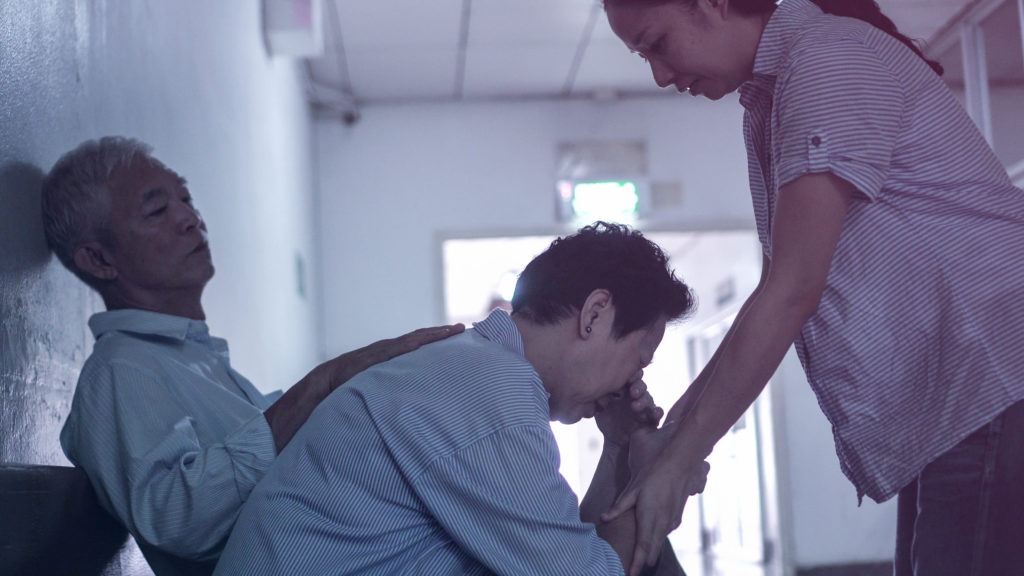Our Lady of Peace (OLP) Hospice doctors Dennis Cross, MD and Yer Moua Xiong, MD recently participated in a BIPOC panel discussion at the 2022 Minnesota Network of Hospice & Palliative Care (MNHPC)’s Annual Conference. The topic was end-of-life cultural decisions, and their objective was to identify skills that will enhance their ability to provide optimal end-of-life care to patients from diverse cultural backgrounds. They talked about how history influences culture and its relevance in caring for patients and families from certain marginalized groups.
Dr. Xiong was born in Laos and came to the U.S. in 1979 at age five. She grew up in St. Paul and earned her medical degree from the University of Minnesota. She also completed her residency in family medicine through the University of Minnesota’s St. John’s Hospital program. She currently sees patients at Allina Health Clinics, and within the OLP Hospice Residence.
End-of-Life and Hmong Culture
Within the panel discussion, Dr. Xiong shared the story of a 50-year-old Hmong American man with hepatocellular cancer who was admitted to the palliative care floor of a local hospital with uncontrolled pain, worsening jaundice, and an inability to eat. His wife and five children cared for him at home and told him he would get better because in Hmong culture, holding onto your loved one for as long as possible is how you show love. Also in the Hmong culture, parents and elders keep the family together; they hold their place in the community, even when in a vegetative state. The patient’s condition continued to worsen and his need for frequent dosing of morphine to control pain increased. He passed away with most of his family gathered at his bedside.
In Hmong culture, hospice is seen as giving up. How do we change this message? The reality is hospice is a gift that offers time and focus on the life we have now. Dr. Xiong encourages physicians to use words like, “shifting of care from curative to palliative to comfort,” and say, “It’s not that we don’t want to treat you, it is that we are unable to treat you.”
Dr. Cross is a United States Army Veteran who served in Vietnam. After serving his country, he earned a medical degree from the Medical School of Wisconsin, formerly known as Marquette Medical School, through the GI Bill. He specializes in internal medicine and nephrology. He was medical director of Chicano Community Health in San Diego and is currently associate medical director of the Medical Policy and Utilization review at HealthPartners, as well as a rounding physician in the Our Lady of Peace Residential Hospice.
End-of-Life and African American Culture
Dr. Cross shared the story of a 78-year-old African American man with metastatic prostate cancer. The patient had previously been on home hospice, cared for by his elderly wife, and entered the hospital with increased weakness and a sudden inability to move his lower extremities. The patient was discharged to OLP Hospice Residence directly from a local hospital, after a spinal CT revealed lytic lesions throughout his spine.
The granddaughter the patient raised lives in Chicago and had not seen her grandfather for several weeks but was previously told by his oncologist that he was okay. So, when he was admitted to the OLP Hospice Residence for 24-hour supportive care, his granddaughter became enraged and accused Dr. Cross and OLP staff of trying to kill him.
Dr. Cross, who is African American, set the ground rules, asked the granddaughter’s permission to speak, invited her to sit down to talk with him, and offered transparency, along with the CT scan. He intentionally avoided talking down to the granddaughter and patronizing her with his words, helping her to clarify her understanding of the patient’s condition.
Dr. Cross believes if a physician recommends that an African American person goes into hospice, there is distrust because the doctor doesn’t have history with the patient, so many assume it’s discrimination because they don’t want to care for them in the hospital. He advises other physicians to be respectful, look people in the eye, empathize, listen attentively, and let them tell their story. He also encourages them to be non-judgmental, flexible, patient, kind, humble, and admit ignorance or uncertainty about cultural values.
Moving forward
Dr. Cross and Dr. Xiong admit there is a need for more physicians, nurses, and caregivers who look like them. They also agree the responsibility of a healthcare professional is to set clear expectations regarding prognosis, explaining quality verses quantity of life. And we need to help communities understand the benefits of hospice and talk about it before it’s needed. Death and dying should not be an emergency. Death is part of life.
